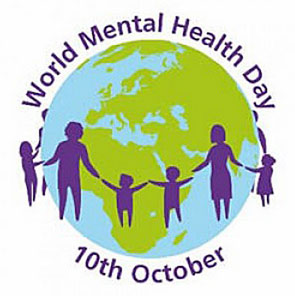 [Editor’s Note: In advance of World Mental Health Day (Oct. 10), Drs Duncan Pedersen and Laurence J. Kirmayer have written the following editorial on the importance of adopting a global approach when looking at mental health.]
[Editor’s Note: In advance of World Mental Health Day (Oct. 10), Drs Duncan Pedersen and Laurence J. Kirmayer have written the following editorial on the importance of adopting a global approach when looking at mental health.]
Global mental health is a new and rapidly evolving field that aims to understand and address the enormous disparities in the prevention and treatment of mental health problems around the world. Too often, mental health issues have been given low priority in regional and international health and development goals.
Concern with global mental health issues has deep roots at McGill. The Division of Social and Transcultural Psychiatry, founded in 1956, has ongoing research and clinical collaborations with communities in many countries as well as in Canada with Indigenous peoples, ethnocultural minorities and refugees.
Global mental health can be approached from many directions, and there is controversy over the most effective strategies. There are persistent tensions between what we might call a “public health approach,” based on applying current evidence-based practices (which are still largely produced in wealthy countries), to problems characterized in terms of Western classifications of mental disorders, most often using mental health interventions derived from professional practices, and a “bottom-up” or socially and culturally based approach that emphasizes listening to local voices, understanding local ways of framing problems and priorities, and engaging and empowering community resources, with the goal of building comprehensive and sustainable solutions. The approach we advocate brings together the perspectives of psychiatry and psychology with anthropology and other social sciences to understand mental health problems in social and cultural context.
The most serious global disparities in mental health are an intricate part of the forces of globalization and the current crises at the planetary level. Global warming, resource depletion, ecosystem degradation, poverty and social inequalities, violent conflict, war, and forced migration are among the important challenges that are shaped by cultural values and practices on both local and global-scales. This cluster of contemporary problems is part of the web of causes that contribute to the global distribution (and apparent world-wide escalation) of mental disorders and is powerfully shaping the global mental health research agenda, which aims to support effective action.
A balanced global mental health agenda for the future must focus not only on neurobiological or molecular models and interventions but also on the wider contexts of health and illness: the social, cultural, environmental and economic determinants of illness and well-being. Next year, as part of our 22nd Annual Summer Program in Social and Cultural Psychiatry, we will host an international Advanced Study Institute on “Psychiatry for a Small Planet” focusing on ecosocial approaches to global mental health. We invite students and colleagues interested in these issues to become involved now through our monthly seminar in global mental health and to take part in our summer program. The cultural and intellectual diversity of our own community holds keys to understanding and engaging with global diversity as a source of strength and resilience.
Dr. Duncan Pedersen
Director, Global Mental Health Program
Division of Social & Transcultural Psychiatry
Laurence J. Kirmayer, MD
James McGill Professor & Director,
Division of Social & Transcultural Psychiatry
